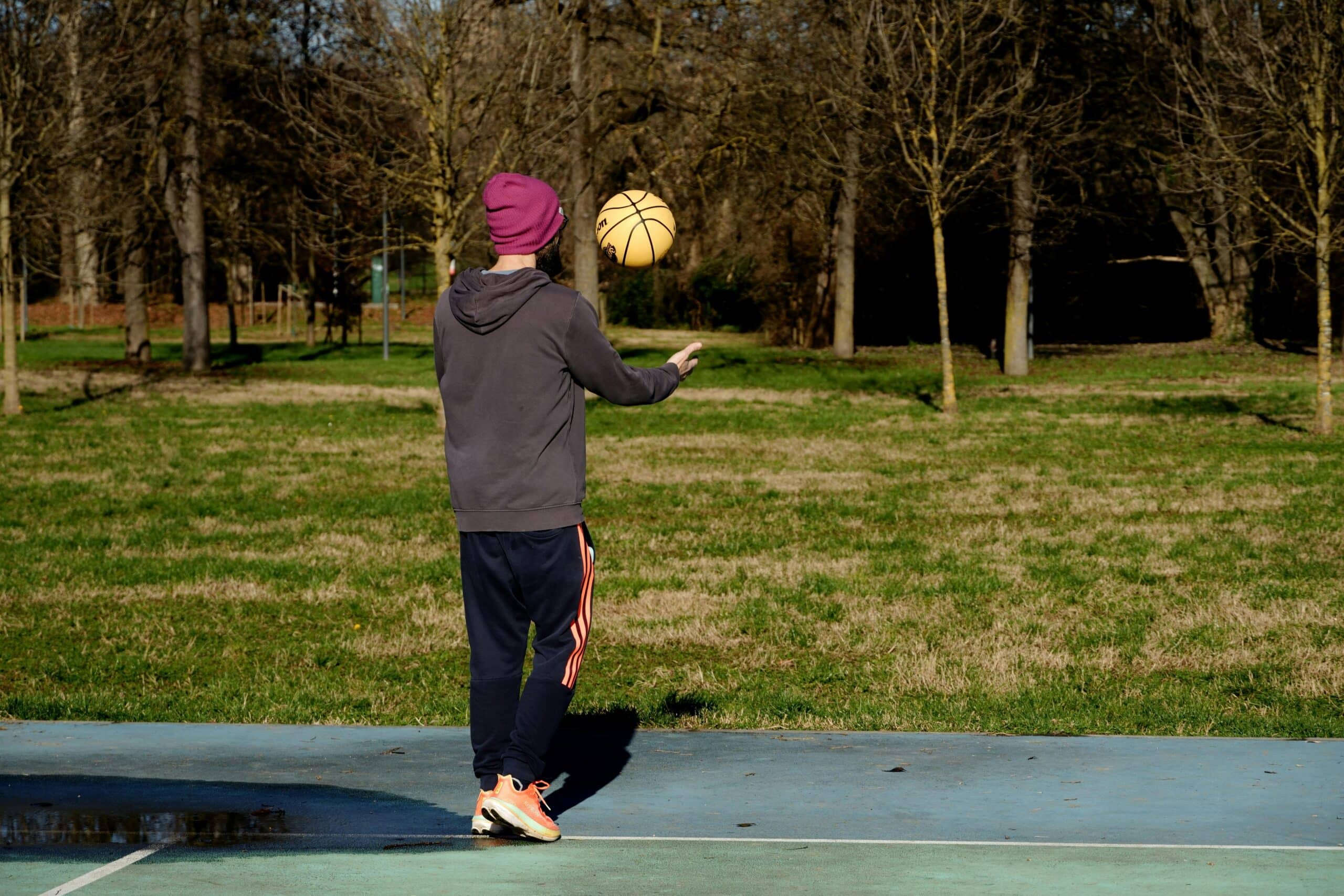Change is hard. We all know that. But what happens when you’re already on the path of transformation and suddenly find yourself slipping back into old habits? It’s a scenario familiar to many, and one that can be discouraging, even for the most determined individuals. In the journey towards personal growth and success, encountering setbacks is not just a possibility; it’s almost a certainty. 🚧 Yet, understanding how to navigate these relapses is where true mastery lies.
Imagine you’ve started a new exercise regime, or perhaps you’ve committed to a healthier diet. The first few weeks feel promising, filled with motivation and optimism. But then, life happens. Stress at work, personal challenges, or even sheer exhaustion can push you back into familiar, comforting patterns. It’s in these moments of relapse that your inner critic may become the loudest, questioning your resolve and ability to succeed. But here’s the catch: relapsing doesn’t mean failing. In fact, it’s an integral part of the journey toward lasting success.
Why do we experience these setbacks, and more importantly, how can we overcome them? In this comprehensive guide, we’ll dive deep into the art of dealing with habit relapses, offering insights and strategies that empower you to not just bounce back, but to do so with greater resilience and insight than before.
Understanding the Nature of Habits
At the core of any behavioral change lies the concept of habits. Habits are automated routines, shaped by repetitive actions and often triggered by specific cues in our environment. They are not just patterns of behavior; they are deeply wired into our brains, making them notoriously hard to break. When we attempt to change a habit, we are essentially rewiring these neural pathways, a task that requires patience, perseverance, and, inevitably, practice.
The science of habits reveals why relapses occur. When stress levels rise or when we face emotional upheaval, our brains often revert to old patterns as a coping mechanism. Recognizing this neurological foundation is crucial because it removes the stigma of relapse as a personal failure. Instead, it becomes a natural part of the change process, a stepping stone rather than a stumbling block.
Strategies for Overcoming Setbacks
In this blog post, we will explore several strategies for overcoming setbacks effectively. First, we’ll examine the importance of self-compassion and the role it plays in maintaining motivation during tough times. It’s easy to be hard on ourselves after a relapse, but self-compassion provides the emotional resilience needed to persist.
We’ll also discuss the power of mindfulness and awareness. By being more present and attuned to our triggers and emotional states, we can better anticipate and manage potential setbacks. This proactive approach helps in creating a buffer against returning to old habits.
Furthermore, accountability will be highlighted as a key tool. Whether through friends, family, or professional support groups, having someone to share your journey with can make all the difference. These relationships provide encouragement and a sense of shared purpose, making it easier to stay on track.
The Role of Environment and Routine
Our environment plays a critical role in shaping our habits. By modifying our surroundings to support our goals, we create a conducive space for new habits to thrive. This section will offer practical tips on how to tailor your environment to minimize the chances of relapse.
Additionally, we will discuss the importance of building a routine that incorporates flexibility and adaptability. Life is unpredictable, and a rigid routine can crumble at the first sign of disruption. Learning to adapt and maintain core habits even amidst chaos is a hallmark of sustainable change.
Embracing the Journey
Ultimately, the path to mastering the art of dealing with habit relapses is about embracing the journey itself. Success is not a straight line but a series of loops and curves, each offering valuable lessons. By viewing setbacks as opportunities for growth rather than failures, we cultivate a mindset geared towards lifelong success and fulfillment. 🌟
Join us as we delve into these topics and more, providing you with the tools and insights necessary to turn relapses into stepping stones on your path to lasting change. Because in the end, it’s not about how many times you fall, but how many times you rise that defines true success.
# Overcoming Setbacks: Mastering the Art of Dealing with Habit Relapses for Lasting Success
## Understanding Habit Relapses: The Hidden Challenges and Their Impact
Habit formation is a complex and often non-linear journey, filled with numerous challenges and setbacks. One of the most frustrating obstacles people face on this path is the inevitable habit relapse. It is essential to understand that relapses are a natural part of the process. The key is not to avoid them entirely but to learn how to manage and overcome them effectively. 🚀
Relapses can be disheartening, especially when you have invested significant time and effort into building new habits. However, they also offer valuable insights into your behavior patterns and triggers. By identifying these triggers, you can devise strategies to mitigate their impact and reinforce your commitment to long-term success. A habit relapse is an opportunity to refine your approach, ensuring that you are better equipped to handle future challenges.
Consider the impact of habit relapses on various aspects of life. From personal health and wellness to career advancement and relationship building, maintaining positive habits is crucial for sustained growth. When relapses occur, they can disrupt this progress and create a sense of failure. It’s important to recognize that setbacks are not indicative of failure but rather stepping stones towards lasting success. By embracing a growth mindset, you can view relapses as valuable learning experiences that contribute to your overall development.
| Aspect | Impact of Relapse | Opportunity for Growth |
| Personal Health | Disruption in fitness or dietary habits | Refine strategies for maintaining consistency |
| Career Advancement | Procrastination or decreased productivity | Identify time management improvements |
| Relationship Building | Neglect of communication habits | Enhance communication skills and empathy |
## The Science Behind Habit Formation: Why Do Relapses Occur?
To effectively manage habit relapses, it is crucial to understand the science behind habit formation. Habits are formed through a process called “habit loop,” which consists of three components: cue, routine, and reward. When a habit is formed, the brain creates a neurological pattern that becomes ingrained over time. Relapses occur when these patterns are disrupted, often due to external factors or internal resistance. 🧠
The brain’s reward system plays a significant role in habit formation. Dopamine, a neurotransmitter associated with pleasure and reward, reinforces behaviors by creating a sense of satisfaction. When a habit is performed, dopamine is released, reinforcing the behavior and making it more likely to be repeated. During a relapse, this reward system is disrupted, often leading to feelings of disappointment and frustration.
Several factors contribute to habit relapses, including stress, environmental changes, and lack of motivation. Stress can trigger a relapse by causing individuals to revert to familiar behaviors as a coping mechanism. Environmental changes, such as a new job or moving to a different city, can disrupt established routines and make it challenging to maintain habits. Additionally, motivation can fluctuate over time, making it difficult to sustain the effort required to maintain positive habits.
- Stress: Identifying stressors and developing stress management techniques can help prevent relapses.
- Environmental Changes: Creating adaptable routines that fit new environments can support habit continuity.
- Lack of Motivation: Setting clear goals and tracking progress can enhance motivation and commitment.
## Strategies for Overcoming Habit Relapses: Building Resilience and Consistency
Overcoming habit relapses requires a strategic and proactive approach. The first step is to acknowledge the relapse and understand that it is a natural part of the habit-building process. Acceptance allows you to move forward without dwelling on past setbacks. Once you have accepted the relapse, the next step is to analyze the situation to identify the underlying causes and triggers.
Reflect on the circumstances that led to the relapse. Were there specific stressors or environmental changes that contributed to the setback? Did your motivation wane, and if so, why? By understanding these factors, you can develop targeted strategies to prevent future relapses. Consider implementing the following strategies to build resilience and consistency:
- Create a Support System: Surround yourself with supportive individuals who can provide encouragement and accountability.
- Set Realistic Goals: Break down your goals into manageable steps to avoid feeling overwhelmed.
- Practice Mindfulness: Incorporate mindfulness techniques to increase self-awareness and reduce stress.
One effective strategy is to create a relapse prevention plan. This plan should outline the steps you will take when faced with potential triggers or challenges. Include coping mechanisms, such as deep breathing exercises or physical activity, to help manage stress and maintain focus. Regularly review and update your plan to ensure it remains relevant and effective.
## The Power of Persistence: Learning from Setbacks to Achieve Long-Term Success
Persistence is a critical component of overcoming habit relapses and achieving long-term success. Embracing a growth mindset, where setbacks are viewed as opportunities for learning and improvement, can significantly enhance resilience. Each relapse offers valuable lessons about your behavior patterns, triggers, and coping mechanisms. By analyzing these insights, you can refine your approach and strengthen your commitment to your goals.
Consider keeping a habit journal to track your progress and reflect on your experiences. Documenting your successes and setbacks can provide valuable insights into your habit formation journey. Use this journal to celebrate your achievements and identify areas for improvement. Over time, you will build a comprehensive understanding of your behavior patterns, enabling you to anticipate potential challenges and implement effective solutions.
One resource that can provide additional guidance and motivation is the YouTube video titled “The Psychology of Habit Formation” by TED-Ed. This video delves into the science of habits and offers practical tips for creating lasting change. Watch it here to gain a deeper understanding of the habit formation process and how to leverage it for success.
## Embracing Change: Adapting to New Challenges and Reinforcing Positive Habits
As you progress on your journey to overcome habit relapses, it’s essential to remain adaptable and open to change. Life is dynamic, and new challenges will inevitably arise. By embracing change and viewing it as an opportunity for growth, you can maintain your momentum and reinforce positive habits.
Flexibility is key when adapting to new challenges. While it’s important to have a structured plan, being open to adjustments can help you navigate unforeseen obstacles. Consider incorporating regular check-ins to assess your progress and make necessary modifications to your approach. This adaptability will ensure that you remain aligned with your goals and continue to build momentum.
Finally, remember that habit formation is a lifelong journey. There will always be new challenges and setbacks to overcome. By cultivating resilience, adaptability, and a growth mindset, you can master the art of dealing with habit relapses and achieve lasting success. Keep pushing forward, and let each setback serve as a stepping stone towards a brighter future. 🌟

Conclusion
Conclusão
Ao longo deste artigo, exploramos os meandros de lidar com recaídas de hábitos, um tema de grande relevância para aqueles que buscam o crescimento pessoal e o sucesso duradouro. Abordamos os desafios inerentes às recaídas, destacando a importância de desenvolver uma mentalidade resiliente e estratégica para superá-las. Além disso, discutimos métodos práticos e comprovados que podem ser aplicados para transformar esses retrocessos em oportunidades de aprendizado e fortalecimento.
Primeiramente, enfatizamos a necessidade de autocompaixão como uma base sólida para lidar com recaídas. Muitas vezes, somos nossos piores críticos, mas é essencial lembrar que recaídas fazem parte do processo de mudança e não indicam fracasso. Essa perspectiva nos ajuda a permanecer focados em nossos objetivos a longo prazo, permitindo um recomeço com mais sabedoria e determinação.
Exploramos também a importância de identificar os gatilhos que levam às recaídas. Entender o que nos motiva a retornar a antigos padrões é crucial para criar estratégias eficazes de prevenção. Desde o ambiente até o estado emocional, os gatilhos podem ser variados, mas ao reconhecê-los, podemos desenvolver respostas mais adaptativas e menos impulsivas. 🧠
Outro ponto vital abordado foi a criação de um plano de ação robusto. A preparação é a chave para enfrentar os desafios com confiança. Um plano bem estruturado, que inclua objetivos claros, etapas específicas e recompensas ao longo do caminho, pode servir como um mapa confiável durante momentos de incerteza. Essa abordagem prática nos mantém no caminho certo, mesmo quando enfrentamos inevitáveis retrocessos.
Destacamos também o valor de buscar apoio, seja através de grupos de apoio, terapia ou comunidades online. Compartilhar experiências e ouvir as histórias de outros pode fornecer tanto inspiração quanto motivação. Além disso, o apoio social é um pilar fundamental para a manutenção da mudança de hábitos, oferecendo um espaço seguro para discutir desafios e celebrar conquistas.
Por fim, discutimos a importância de celebrar as pequenas vitórias. Cada passo dado na direção certa merece reconhecimento, pois são esses pequenos triunfos que acumulam momentum e nos impulsionam a continuar. Ao valorizar nossas conquistas, por menores que sejam, cultivamos uma mentalidade positiva que reforça nosso comprometimento com a mudança. 🎉
Em suma, superar recaídas é um aspecto inevitável, mas administrável, da jornada para o sucesso duradouro. Ao adotar uma abordagem compassiva, estratégica e proativa, podemos transformar os desafios em degraus para o crescimento contínuo. Esperamos que este artigo tenha proporcionado insights valiosos e ferramentas práticas que você possa aplicar em sua própria jornada de desenvolvimento pessoal.
Reforçamos a importância deste tema, pois o domínio sobre a arte de lidar com recaídas pode definir a diferença entre abandonar um objetivo ou transformá-lo em realidade. Ao aplicar o que aprendeu aqui, você está não apenas investindo em seu próprio sucesso, mas também inspirando aqueles ao seu redor a fazer o mesmo.
ou desenvolva seu plano de ação. Se você encontrou valor neste artigo, considere compartilhar suas experiências nos comentários abaixo. Sua história pode ser a inspiração que alguém precisa. E não se esqueça de compartilhar este conteúdo com amigos e familiares que também possam se beneficiar. Juntos, podemos cultivar uma comunidade de apoio e crescimento contínuo! 🌟
Toni Santos is a visual storyteller and sartorial artisan whose work revives the forgotten threads of historical fashion. With a deep fascination for garments lost to time, Toni weaves together art, memory, and material culture to illuminate the styles, symbols, and silent codes once stitched into humanity’s past.
His creative journey is rooted in a passion for clothing as narrative — from ceremonial robes of vanished empires to the subtle embroidery of medieval outcasts, from whispered meanings in Victorian accessories to the ritual adornments of ancient rites. Each piece Toni brings to life is more than aesthetic; it’s an echo of identity, power, belief, and transformation across centuries.
With a background in visual design and handcrafted techniques, Toni blends historical research with creative interpretation. His work reimagines the overlooked: the feathered cloaks, perfumed gloves, symbolic fastenings, and forbidden textiles that once defined entire cultures — now reborn as visual artifacts that speak across time.
As the visionary behind Vizovex, Toni shares stories, artworks, and curated collections that reconnect audiences with the deeper meaning of what we wear — and what clothing reveals when it is finally seen not just as fashion, but as forgotten language.
His work is a tribute to:
The poetry of garments lost in history’s folds
The cultural codes woven into ancient textiles
The beauty of attire as identity, memory, and myth
Whether you’re a fashion historian, a designer seeking timeless inspiration, or simply drawn to the mystery of what people once wore and why, Toni invites you to explore a world where forgotten fashions are revived — one stitch, one silhouette, one story at a time.





